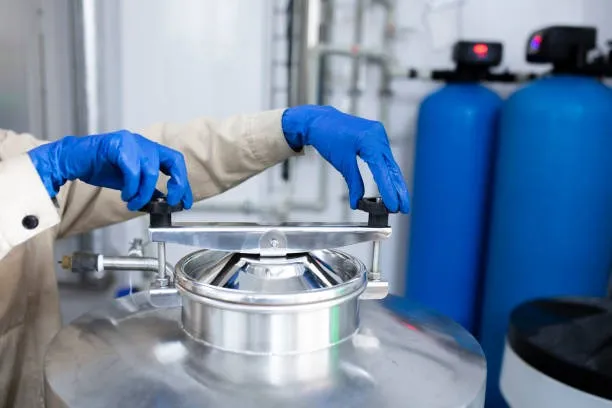
Boiler Replacement in Landisville, PA
Replacing a boiler is one of the most effective ways to restore reliable heat, reduce energy bills, and improve comfort in Landisville, PA homes. With cold Lancaster County winters and many older properties still using cast-iron or inefficient oil-fired systems, a modern high-efficiency boiler replacement can deliver safer operation, quieter performance, and measurable energy savings.
Why consider boiler replacement in Landisville
- Landisville winters are cold enough that an underperforming boiler increases fuel consumption and uneven heating.
- Many area homes have aging equipment, inadequate sizing, or outdated venting that reduce efficiency and reliability.
- Upgrading to a high-efficiency condensing boiler or modern modulating condensing unit can cut fuel use, lower emissions, and improve zone control for baseboard or radiant systems.
Common boiler problems in Landisville homes
- Frequent cycling and uneven heat output from undersized or failing boilers.
- Corrosion, leaks, or failure of old cast-iron sections, especially in systems over 15-20 years old.
- Incompatible venting or chimney conditions for modern condensing units (condensate management and PVC venting needs).
- Poor combustion and higher fuel costs in older oil or non-condensing gas boilers.
- Outdated controls that prevent zoning, outdoor reset, or modulation for efficiency.
Types of replacement systems commonly recommended
- High-efficiency condensing gas boilers (modulating burners, 90%+ AFUE) for natural gas service.
- Condensing oil boilers or conversion to high-efficiency gas where fuel options allow.
- Low-mass condensing boilers for radiant floor systems and quick response.
- New controls and zoning integration (outdoor reset, smart thermostats) to maximize efficiency and comfort.
Assessment and sizing: how we determine the right boiler
A professional replacement begins with a thorough system assessment:
- Home heat load calculation - a Manual J style evaluation to size the boiler based on square footage, insulation, window types, and local design temperatures for Landisville.
- Distribution review - inspect baseboard, radiators, or radiant floors to confirm heat output requirements and compatibility.
- Fuel and venting analysis - verify natural gas, propane, or oil supply, pressure, and existing chimney or vent condition.
- Equipment condition - assess piping, expansion tanks, pumps, and controls to determine if upgrades are needed.Accurate sizing prevents short cycling and ensures the new boiler operates at peak efficiency for Lancaster County winters.
Replacement process: what happens during install
- Pre-install planning: finalize model choice, confirm permits and clearances, and order appropriate venting and piping materials.
- Decommissioning and removal: safe draining and removal of old boiler and associated components with proper disposal.
- Mechanical work: install new boiler, updated flue/vent system, condensate neutralizer if needed, new circulator pumps, and expansion tank.
- Controls and integration: install modern thermostats, outdoor reset sensors, and zoning controls where applicable.
- System fill and purge: refill, bleed air, and pressure-test the hydronic system for proper operation.
- Combustion and safety testing: perform combustion efficiency testing, CO checks, and confirm proper venting and clearances.
- Final inspection: coordinate required municipal inspections and provide manufacturer warranty registration documentation.
Permitting and code compliance
Boiler replacements in Landisville must follow Pennsylvania and local Lancaster County building and fuel gas codes. Typical requirements:
- Building permit and fuel/gas permit from the local township or borough.
- Proper venting methods and chimney lining for non-condensing vs condensing units.
- Electrical and gas connections completed to code by licensed technicians.
- Final inspection and approval by the authority having jurisdiction.Working with a licensed installer ensures permit acquisition, adherence to local code, and successful inspection sign-off.
Expected timelines and warranties
- Initial assessment and proposal: typically completed within 1 to 3 business days after the service visit.
- Equipment lead times: common boilers are often in stock; specialized units or larger models may require 1 to 3 weeks.
- Installation duration: most residential swaps take 1 to 3 full days depending on complexity and whether piping or radiator changes are required.
- Permits and inspections can add several days depending on local scheduling.
- Warranties: manufacturer parts warranties commonly range from 5 to 10 years on heat exchangers for high-efficiency boilers; labor warranties vary and are often included for a set period. Always confirm the combination of manufacturer and installer labor warranty before purchase.
Cost considerations and financing options
Cost depends on system type, sizing, required distribution upgrades, and venting changes. Key cost drivers:
- Boiler efficiency rating and brand.
- Extent of piping or radiator replacement.
- Need for chimney lining or condensate management.
- Controls and zoning upgrades.Financing options are frequently available from HVAC lenders and local programs. Additionally, check for utility rebates, federal tax incentives, or state energy programs that can offset equipment costs for high-efficiency installations in Pennsylvania.
Energy savings projections and payback
- Older non-condensing boilers commonly operate at 60% to 80% AFUE. New condensing boilers reach 90% to 98% AFUE.
- Typical energy savings for replacing a 75% AFUE boiler with a 95% AFUE condensing unit range from 15% to 30% on annual fuel consumption, with higher savings when combined with improved controls or zoning.
- Homes with poor distribution or oversizing may see different results; a proper heat load and system optimization provide the most reliable projections.
- Simple payback depends on fuel type and usage patterns but upgrading often yields shorter payback during prolonged cold seasons like those in Lancaster County.
Maintenance and long-term benefits
- Annual tune-ups preserve efficiency, extend equipment life, and maintain warranty compliance.
- Regular checks of expansion tanks, circulator pumps, and combustion settings prevent common failures.
- Benefits of timely replacement include improved reliability during Landisville winters, lower heating bills, quieter operation, and reduced risk of emergency failures.
Replacing a boiler in Landisville, PA is a significant home investment that improves comfort, safety, and efficiency. A methodical assessment, correct sizing, code-compliant installation, and proper controls are essential to maximize performance and long-term savings.


Enjoy flexible financing options that make upgrading or repairing your HVAC system easy and budget-friendly.










